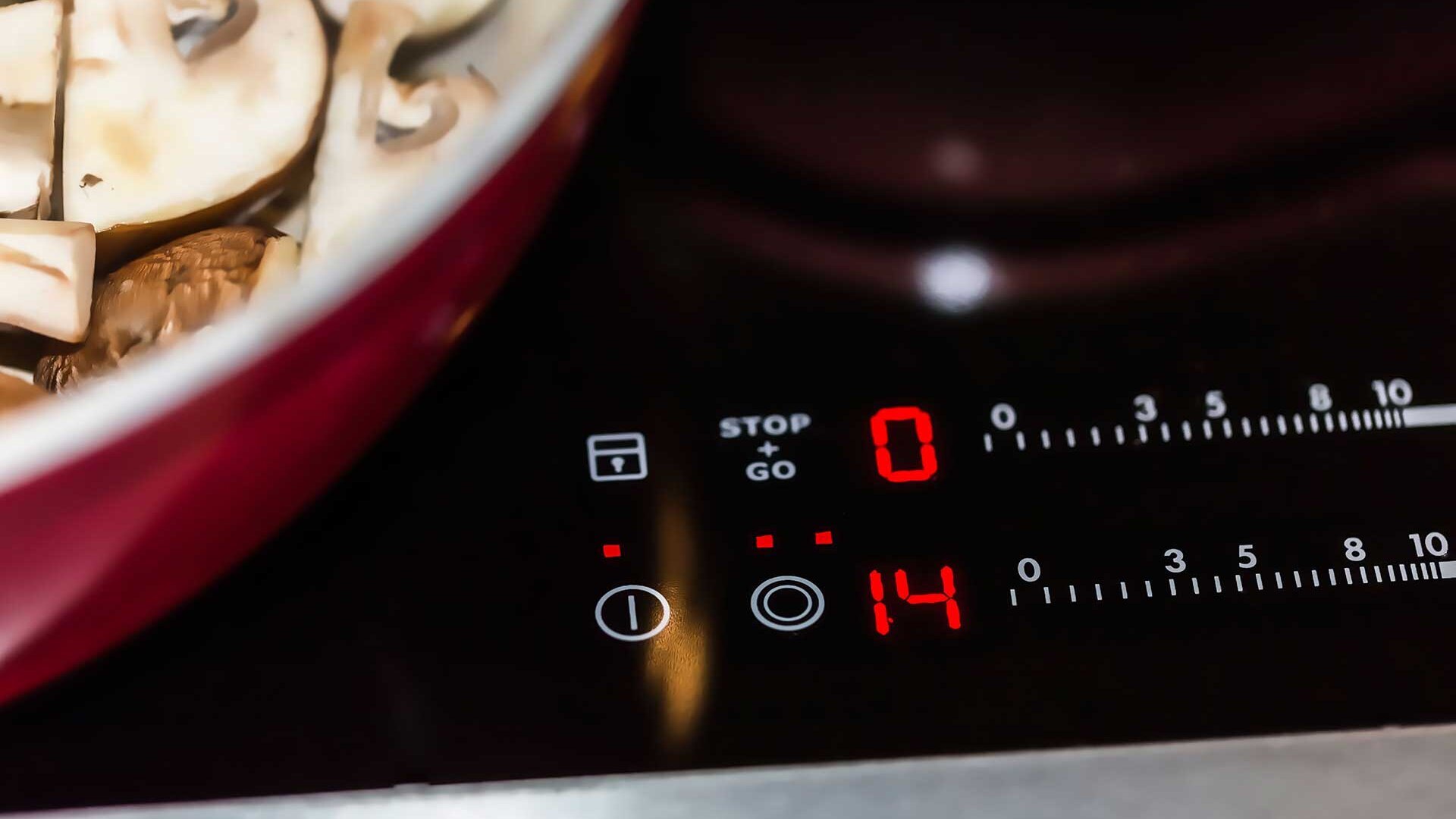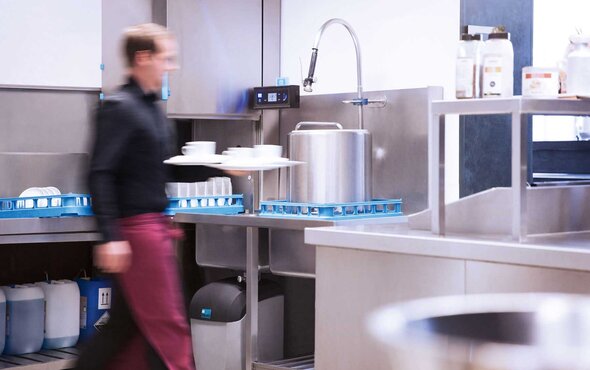Electricity makes up as much as 70% of all foodservice costs. That's why the best cooks always use cooking methods that conserve energy. For example, eggs don't need to be submerged when boiling. A two-fingers-depth of water will do the trick, and will also reach the boiling point sooner. Add a snugly fitting lid to create steam, and eggs are ready in a jiffy! Energy-efficient kitchen equipment is also a way to consistently save money with every use. MEIKO commercial dishwashers are designed and built to use less energy, water and chemicals. See how a well-known California hotel is saving more than $23,000/year by switching to a MEIKO M-iQ flight type conveyor dishwasher from its existing dish machine.
Strategies like these enable talented managers, cooks and chefs in hotels, restaurants, bars and cafés to save time, water, energy, and best of all ‒ money!
Customers who choose to spend their hard-earned money and time with you want the highest quality of service combined with great food and just the right atmosphere. But today - even more is expected: Your part in helping to protect and sustain the environment. Even small efforts such as water only on request, implementing paper straws, or using locally grown, farm-to-table ingredients mean a lot. And if you get it right ‒ diners will appreciate it and visit you again and again.

Being sustainable doesn't just mean protecting the environment. It's also a way to respect customer values. Today, sustainability in foodservice is increasingly important to diners. In a recent international survey conducted by Michelin's Bookatable, 9 out of 10 people who eat out indicated a preference for environmentally responsible dining establishments. This includes businesses that employ sustainable food management practices and conservation of other natural resources such as water and energy. These preferences are now found worldwide.
CARING FOR THE ENVIRONMENT CAN IMPROVE YOUR PROFITABILITY
The foodservice industry faces a challenge: How do you balance protecting the environment with profitability ‒ especially in the kitchen, an area that uses a lot of energy?
Here are some easy ways to reduce energy consumption during foodservice production:
TIP NO. 1: INVEST IN TECHNOLOGY.
Gas and induction cooktops are worth the investment. They're the best heating methods on the market today.
In professional kitchens, speed is key, and everything must run like clockwork. No matter how good the food, diners can quickly become impatient if meal service is slow. Gas and induction cooktops speed up service and create savings for the environment, as well as the bottom line.
MEIKO’s restaurant dishwashers speed up productivity in the kitchen with ergonomically designed components that are easy to access and clean, and easy-to-read display screens and progress bars for operators. Fast wash cycles produce perfect clean that saves labor by eliminating rewashing and hand polishing. Nashville, Tennessee's Urban Grub, Craft Brewed and 360 Bistro, shown in this video, are just a few of the restaurants and bars that use MEIKO equipment for cost-savings as well as industry-leading clean solutions. Modern appliances such as MEIKO dishwashers with holistic cleaning technology provide advantages that make it possible to minimize production costs and become more environmentally friendly.

Newer, more modern appliances provide many advantages that make it possible to minimize production costs and become more environmentally friendly.
TIP NO. 2: USE HIGH-QUALITY COOKWARE AND APPLIANCES
They old saying "You get what you pay for" hasn't lasted so long for no reason. Inexpensive, low-quality cookware is often poorly insulated and can guzzle energy. That means cooking will take longer, all the while consuming power. Old cookware can also cost you; if the bases are uneven, less surface area is contact with the cooktop. That can increase energy consumption by as much as 30%! Lucas Glanville, head chef at Hyatt Hotel Singapore, is extremely concerned about sustainability. He's also extremely impressed by the energy and water savings of his MEIKO M-iQ flight-type conveyor dishwasher. Chef Glanville knows that an investment in high-quality equipment is a wise investment.
TIP NO. 3: USE FRESH ‒ NOT FROZEN ‒ PRODUCE WHENEVER POSSIBLE.
Mom was right all along! Fresh food really does taste better. And these days, we also know that using fresh produce is not only more flavorful and nutritious, it's more energy efficient and environmentally friendly than frozen foods. The cost of the energy needed to store and later defrost frozen food can be significant for commercial foodservice operations.
Restaurants using locally sourced, farm-to-table fruits, vegetables and meats have a definite cost advantage over operations that use mainly frozen foods. The appeal to diners is also unmistakable, as they can usually taste the difference fresh food makes. Freshly picked, colorful ingredients also help you create a beautiful presentation ‒ a feast for the eyes that will keep your customers coming back for more, while you reap the benefits!

ENVIRONMENTALLY FRIENDLY KITCHEN PRACTICES CAN SIGNIFICANTLY REDUCE YOUR OPERATING COSTS!
Start making your kitchen more environmentally friendly with these cost-saving tips, and watch your bottom line improve, too, all while generating less pollution and preserving water and energy, two of earth's most precious resources. MEIKO's complete line of dishwashing machines ensures a cost-saving, sustainable solution no matter what type of foodservice operation you manage.


